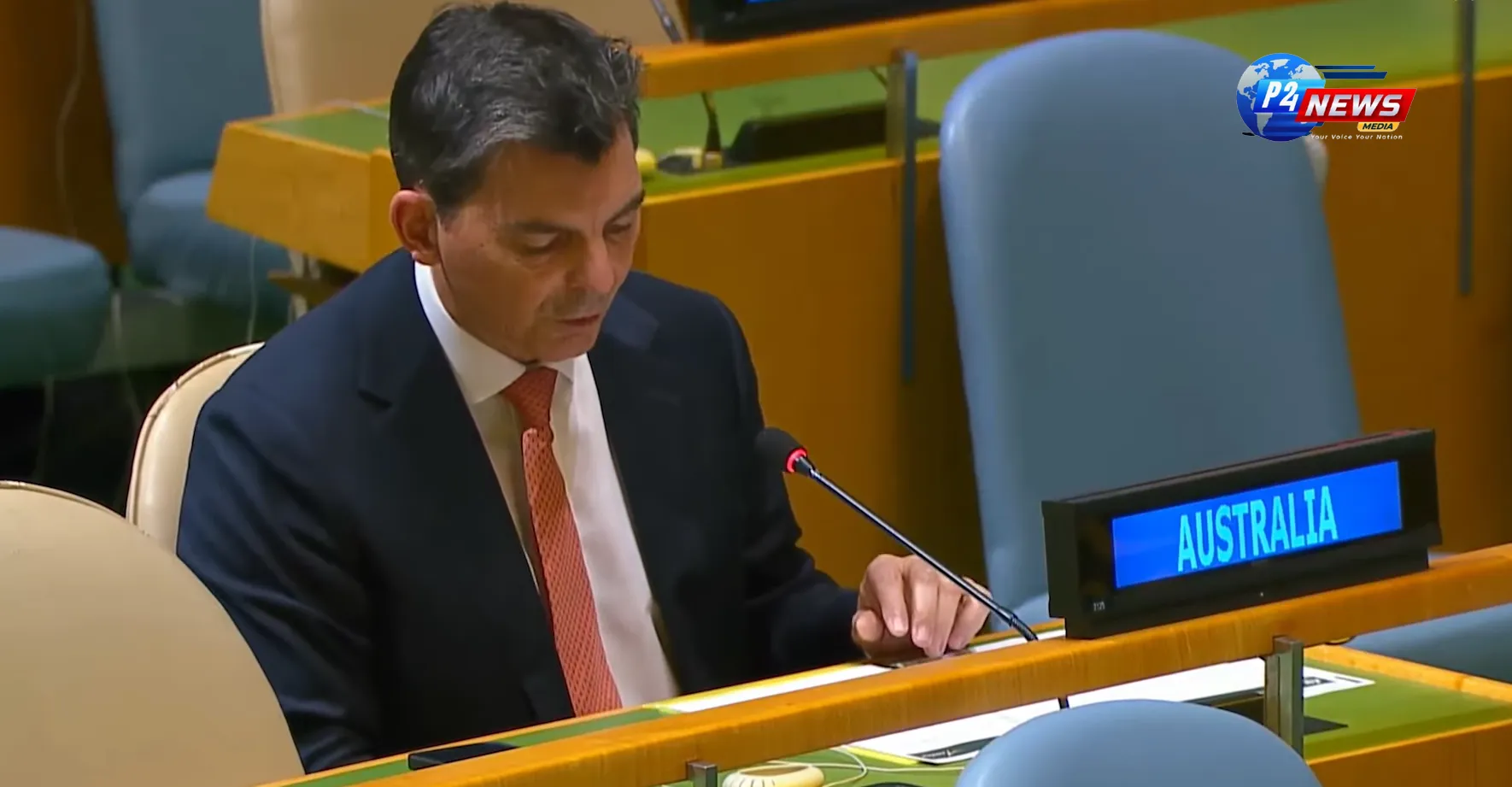A significant majority of countries have united in voting for Israel to lift its restrictions on the Palestinian aid agency, UNRWA. This effort highlights the global concern for humanitarian support and the need for cooperation in the region.
A significant majority of countries have united in voting for Israel to lift its restrictions on the Palestinian aid agency, UNRWA. This effort highlights the global concern for humanitarian support and the need for cooperation in the region.
Australia has joined forces with over 150 nations at the United Nations to advocate for the reversal of Israel's ban on the Palestinian aid organization, UNRWA, while also calling for an immediate and enduring ceasefire in Gaza. This move is anticipated to heighten tensions with Israel.
During a special emergency session at the UN on Thursday, Australia aligned itself with the majority of countries, voting in favor of two significant resolutions. This decision marked a departure from the stance taken by the United States and Israel, who opposed these motions.
The resolution advocating for a permanent and unconditional ceasefire, the release of hostages, the provision of humanitarian assistance, and the safeguarding of civilians garnered support from 158 nations while nine voted against it, and 13 chose to abstain. In a related resolution supporting UNRWA, which urged the Israeli Knesset to revoke laws preventing the agency from functioning in Israel and the occupied Palestinian territories, 159 members voted in favor, with the same nine opposing and 11 abstaining.
The Israeli Knesset had imposed a ban on UNRWA, citing allegations that some of its personnel had affiliations with Hamas. In a related development, the UN dismissed nine staff members in August following an internal investigation that suggested their possible involvement in the Hamas-led attack on October 7 against Israel.
According to Guardian Australia, the federal government expressed hesitations regarding the phrasing of the resolutions yet ultimately backed their core principles. James Larsen, Australia’s representative to the UN, stated that despite some disagreements with certain aspects of the UNRWA resolution, the support reflects Australia’s commitment to allowing UNRWA to continue its essential humanitarian work.
He emphasized Australia’s serious concerns regarding legislation passed by the Israeli Knesset, warning that restricting UNRWA's operations could worsen an already dire humanitarian situation. Larsen also insisted that UNRWA must address any credible allegations against its staff and ensure accountability, asserting that any connections to terrorist groups are unacceptable.
Further, he reiterated Australia’s calls for the protection of humanitarian workers and UN personnel, noting that a ceasefire is the most effective way to safeguard these individuals and the civilians caught in the conflict.
The resolution calling for an immediate, unconditional, and permanent ceasefire follows Australia’s previous vote with 152 other nations, demanding a ceasefire in Gaza and the immediate release of all hostages nearly a year ago. This resolution also urges compliance with international law, advocating for the release of arbitrary detainees and supports a pathway toward a two-state solution.
Another resolution concerning UNRWA expressed dismay over recent Israeli legislation designating the agency as a terrorist entity and imposing a 90-day ban on its operations in Gaza, the West Bank, and annexed East Jerusalem. It called for Israel to revoke this decision and to facilitate unhindered humanitarian access to the region.
The resolution highlighted the alarming humanitarian crisis faced by Palestinian refugees in Gaza due to military actions, severe restrictions on humanitarian aid, and mass forced displacements. In a previous ruling in July, the UN’s International Court of Justice called on Israel to promptly end its occupation of Palestinian territories and to make full reparations for its actions deemed internationally unlawful.
Although the ceasefire resolution referenced the ICJ’s advisory opinion, Australia is reportedly still evaluating the implications of these findings. The relationship between Australia and Israel has become increasingly strained after Australia sided with 156 other UN member nations, including the UK and Canada, in demanding an end to Israel’s presence in the Occupied Palestinian Territories.
In response to Australia's vote, Israeli Prime Minister Benjamin Netanyahu criticized the decision, describing it as a significant shift in policy over the past two decades. He accused the Albanese government of adopting a position hostile towards Israel, suggesting that this anti-Israel sentiment had repercussions, including an arson attack on a synagogue in Melbourne.
In defense of Australia’s stance, Foreign Minister Penny Wong stated that it is not antisemitic to expect Israel to adhere to international law, which applies universally. She further clarified that advocating for the protection of children and civilians or calling for a two-state solution aimed at fostering peace and security for both Israelis and Palestinians does not reflect antisemitism.
Prime Minister Anthony Albanese reiterated on Wednesday that Australia’s position regarding the Israel-Palestine conflict remains unchanged. He affirmed his long-standing support for Israel while also acknowledging the legitimate aspirations of the Palestinian people and the necessity for security for all individuals in the region.
Like
Dislike
Love
Angry
Sad
Funny
Pray
'Trump Tracker: Tulsi Gabbard's Surprising Appointment as US Intelligence Chief
November 14, 20249th Ayurveda Day in Melbourne: A Celebration of Ayurvedic Innovations and Global Health Impact
November 10, 2024🍪 We Value Your Privacy and Experience Hi there! We use cookies to enhance your browsing experience, provide personalized content, and analyze site traffic. By continuing to use our site, you consent to our use of cookies.







Comments 0